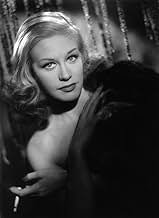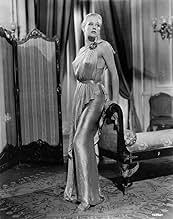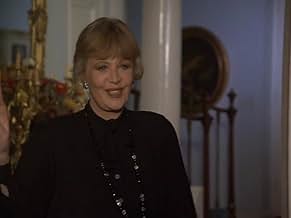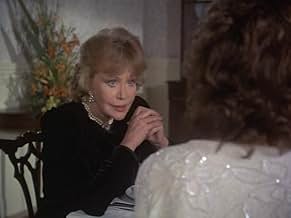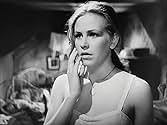Hildegard Knef(1925-2002)
- Actress
- Writer
- Additional Crew
Hildegard Frieda Albertine Knef was born on December 28, 1925 in Ulm,
Germany. In 1940, she began to study acting. Even before the fall of the
Third Reich, she appeared in several films, but most of them were only
released after the war. To avoid being raped by Soviet soldiers, she dressed
like a young man and was sent to a camp for prisoners of war. She escaped
and returned to war-shattered Berlin, where she played her first parts on
stage. The first German movie after World War II,
Die Mörder sind unter uns (1946),
made her a star. David O. Selznick
invited her to Hollywood and offered her a contract--with two conditions:
Hildegard Knef should change her name to Gilda Christian, and she should
pretend to be Austrian instead of German. She refused both and returned
to Germany. In 1951 she provoked one of the greatest scandals in German
film history when she appeared naked in the film Die Sünderin (1951).
The Roman Catholic Church protested vehemently against that film, but
Hildegard just commented: "I can't understand all that tumult--five years
after Auschwitz!"
With the support of her first husband, the American Kurt Hirsch, she tried a second time to launch a Hollywood career and changed her surname from Knef to Neff (Americans could not pronounce Knef), but the only worthwhile part she got was a supporting role in the Hemingway adaptation of The Snows of Kilimanjaro (1952). She became a leading lady in German, French, and British films. Finally, America offered her another chance, this time on the stage. She achieved a kind of stardom as Ninotchka in the very popular Broadway play "Silk Stockings".
In 1963 she began a new career as a singer, surprising audiences with her typical, deep, smoky voice and the fact that she wrote many of her own song lyrics. In 1970, she wrote the autobiographical bestseller "Der Geschenkte Gaul". She got sympathy from all over the world for her fight against cancer, which she defeated several times.
After the German reunification, Hildegarde Knef moved back to Berlin and died at age 76 of a lung infection on February 1, 2002.
With the support of her first husband, the American Kurt Hirsch, she tried a second time to launch a Hollywood career and changed her surname from Knef to Neff (Americans could not pronounce Knef), but the only worthwhile part she got was a supporting role in the Hemingway adaptation of The Snows of Kilimanjaro (1952). She became a leading lady in German, French, and British films. Finally, America offered her another chance, this time on the stage. She achieved a kind of stardom as Ninotchka in the very popular Broadway play "Silk Stockings".
In 1963 she began a new career as a singer, surprising audiences with her typical, deep, smoky voice and the fact that she wrote many of her own song lyrics. In 1970, she wrote the autobiographical bestseller "Der Geschenkte Gaul". She got sympathy from all over the world for her fight against cancer, which she defeated several times.
After the German reunification, Hildegarde Knef moved back to Berlin and died at age 76 of a lung infection on February 1, 2002.





